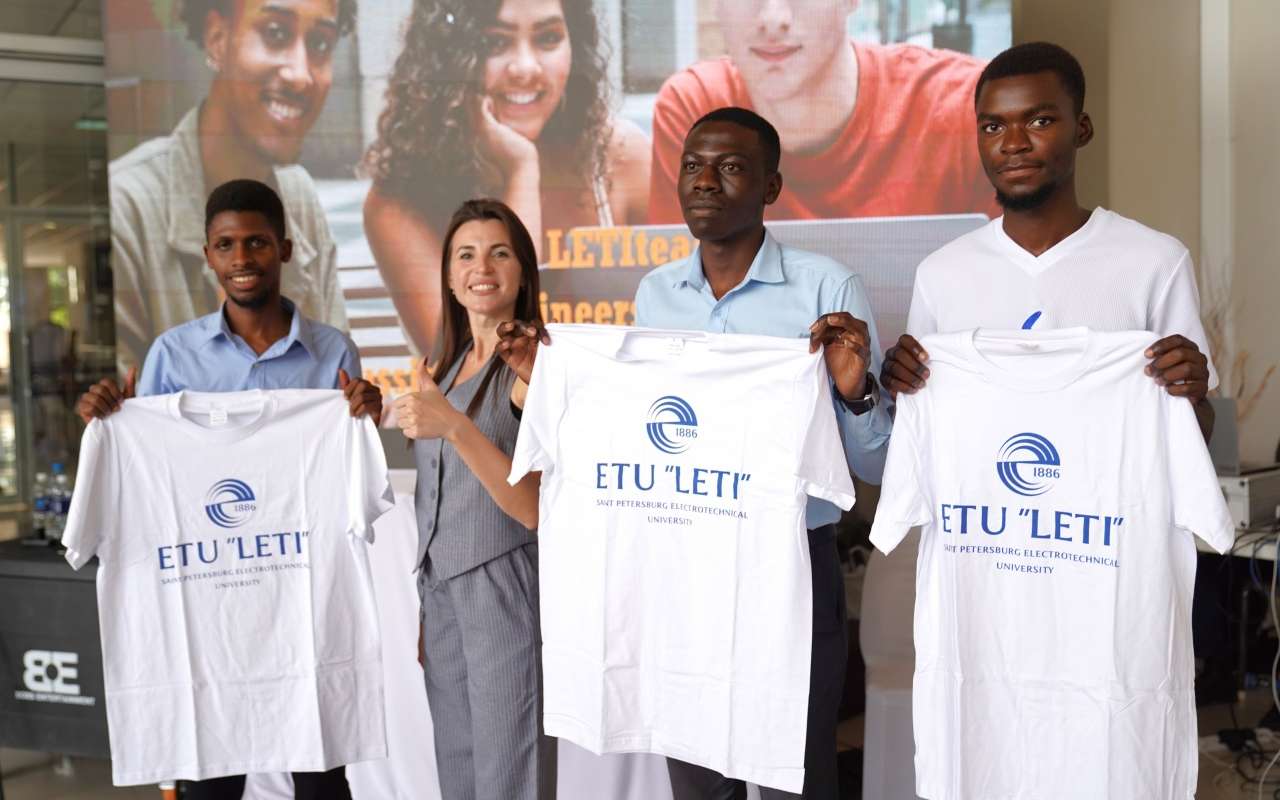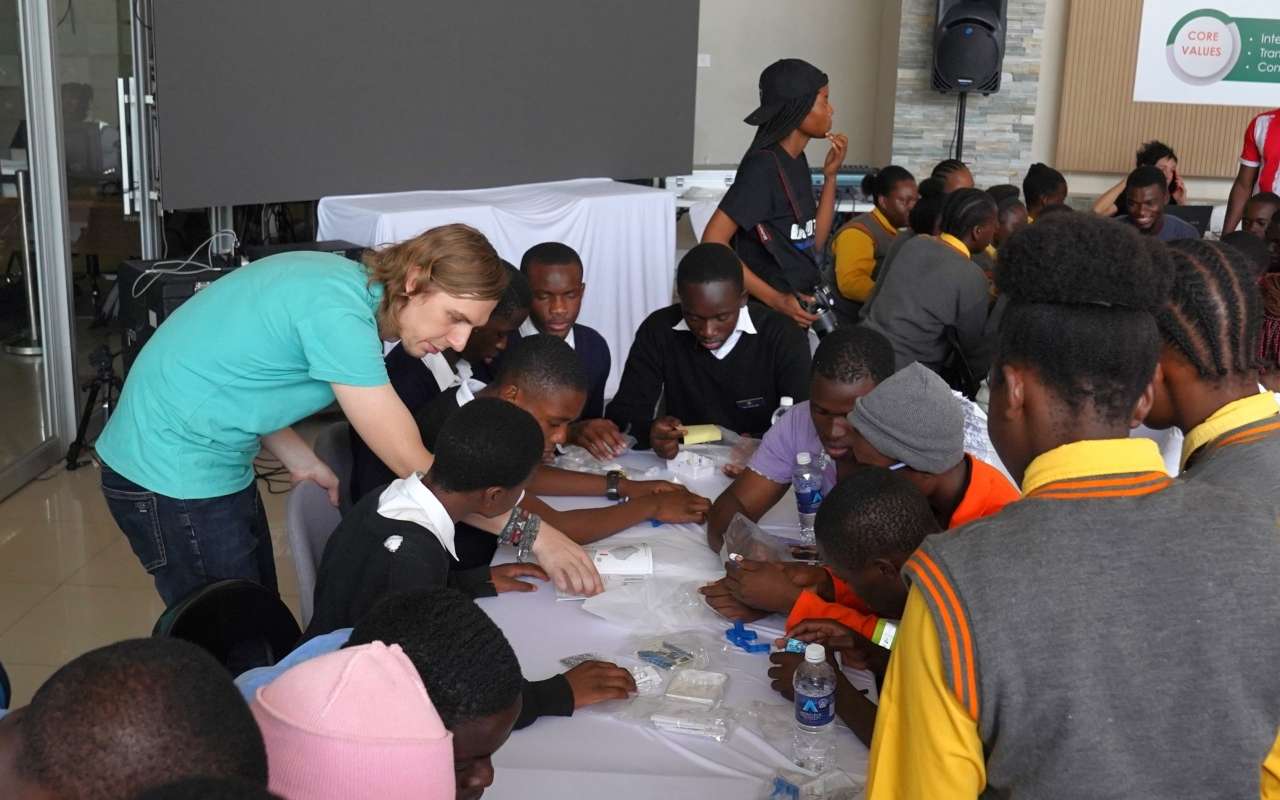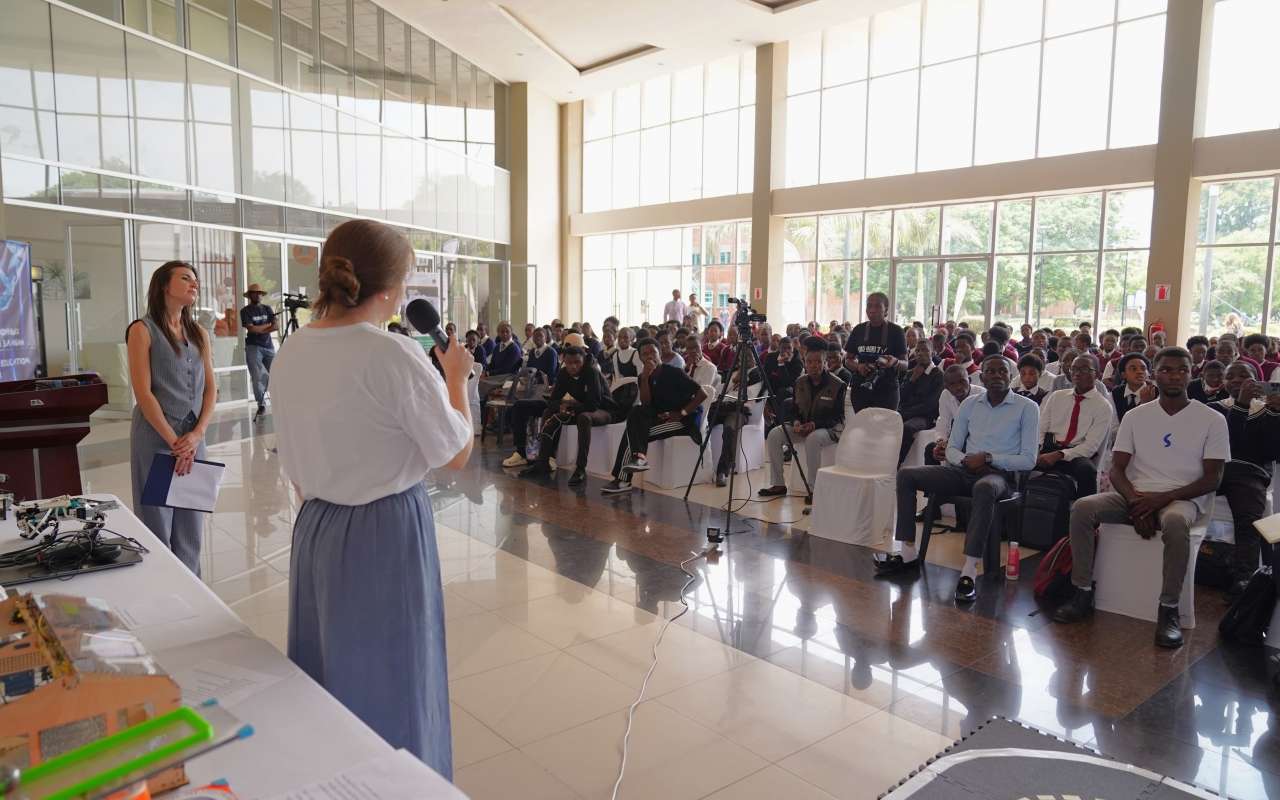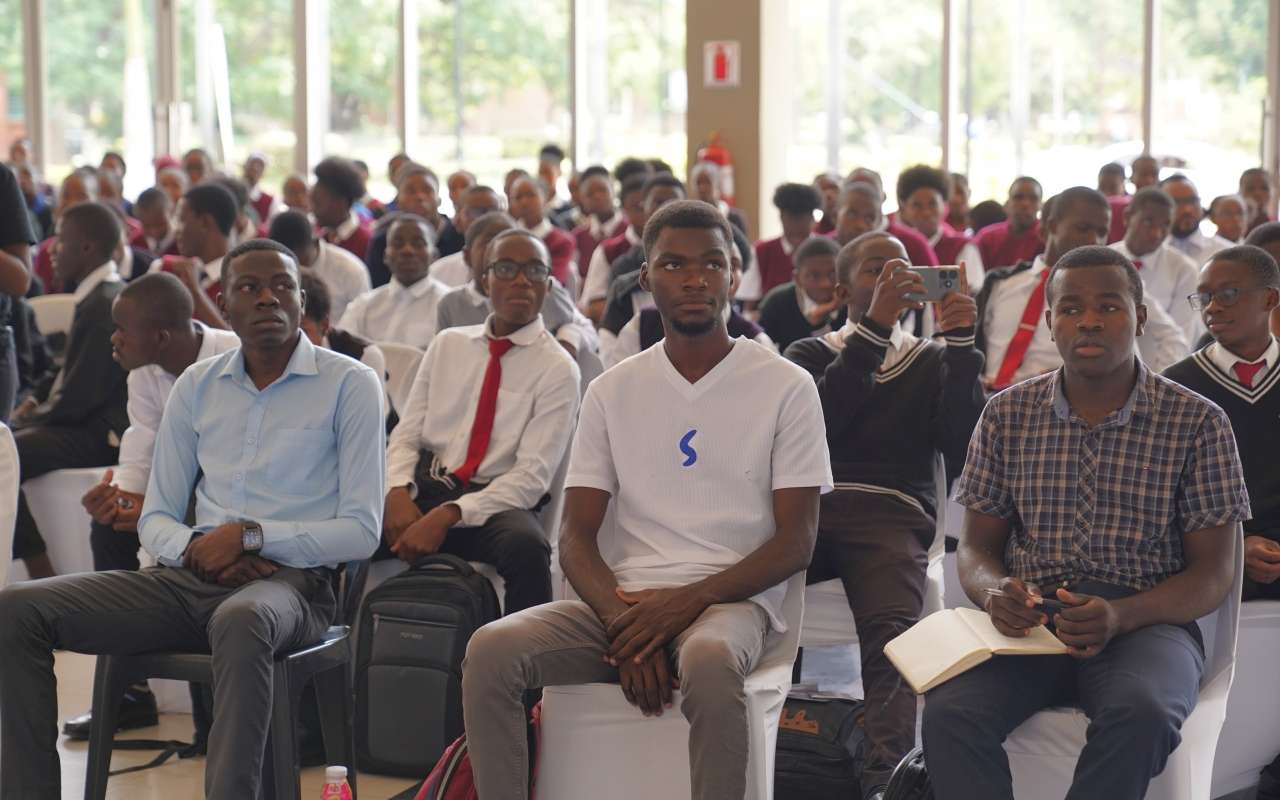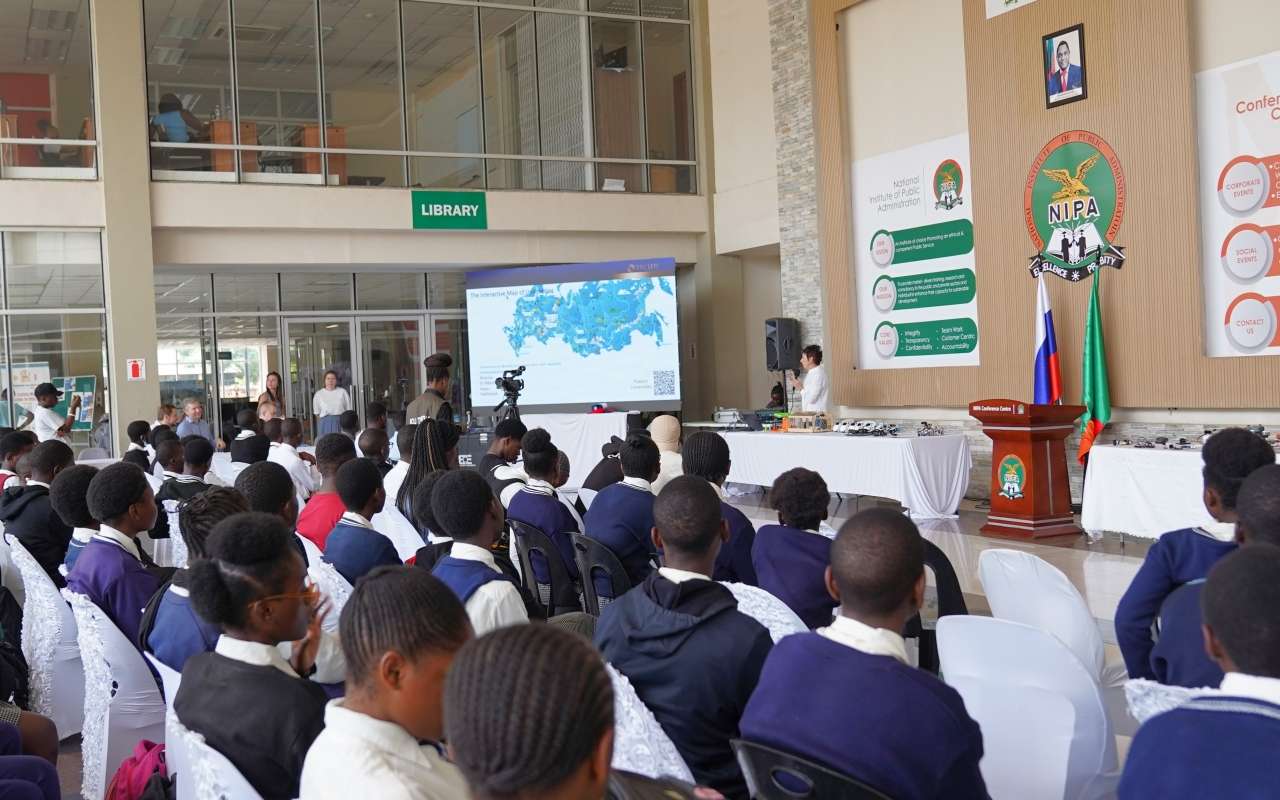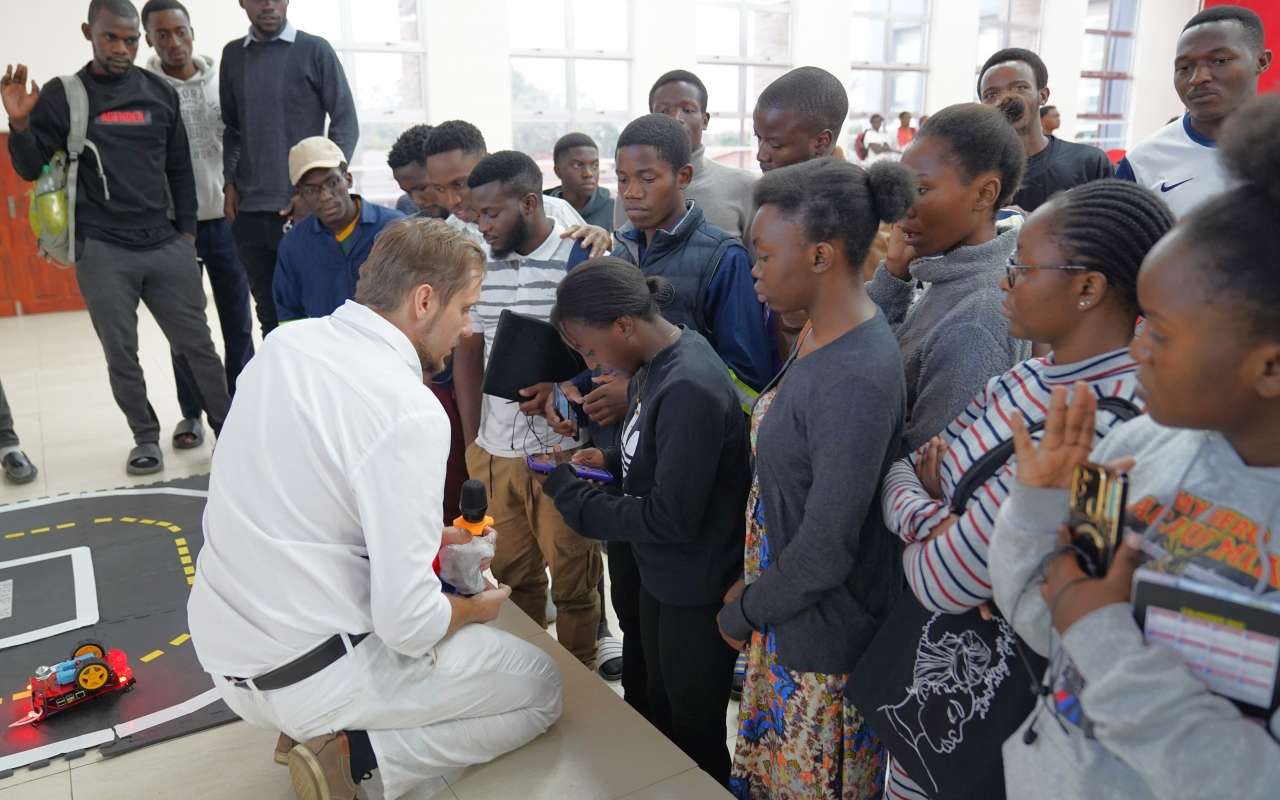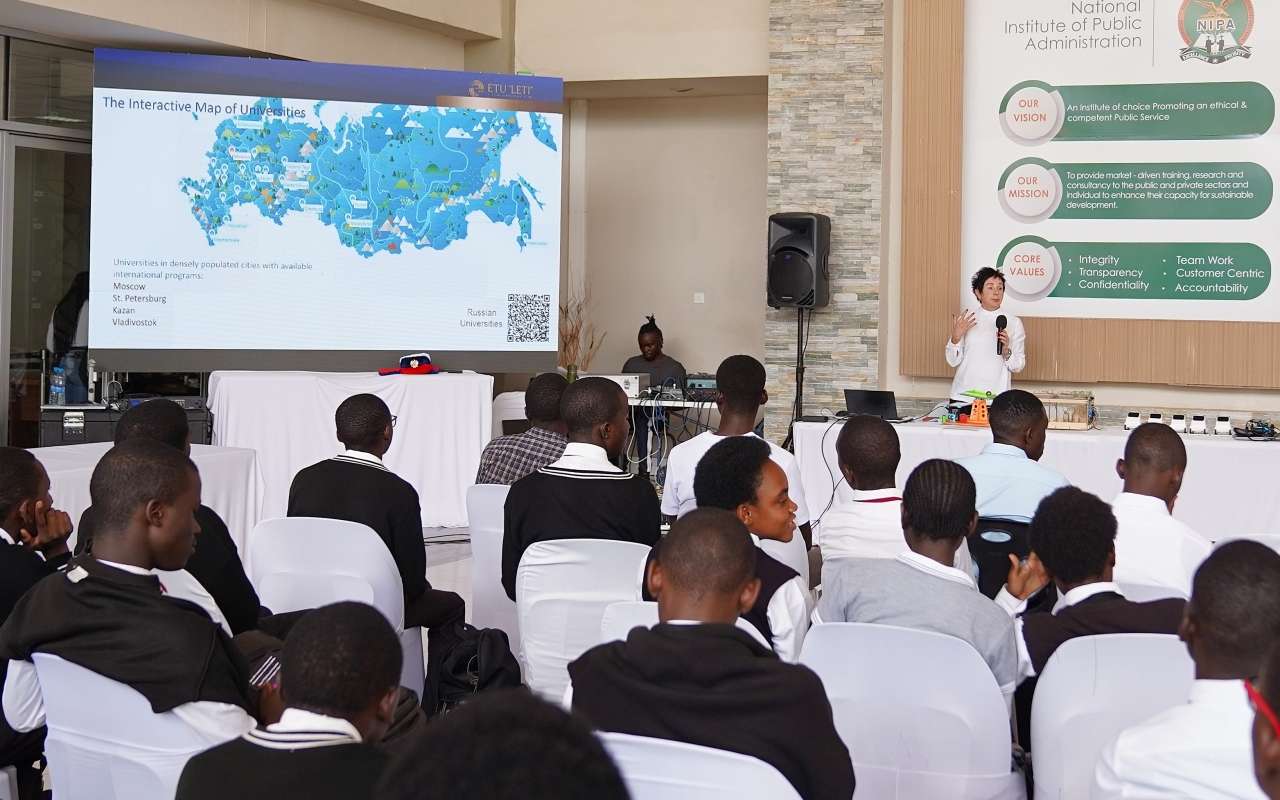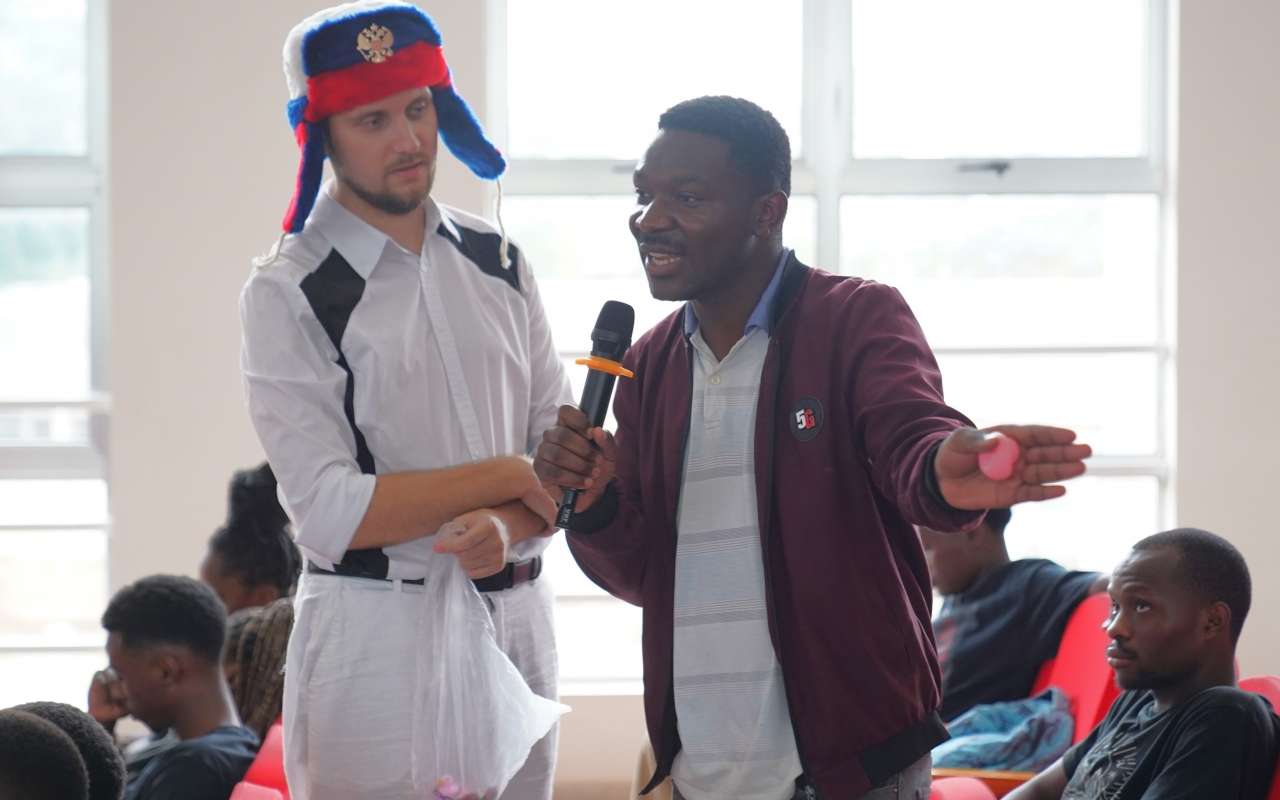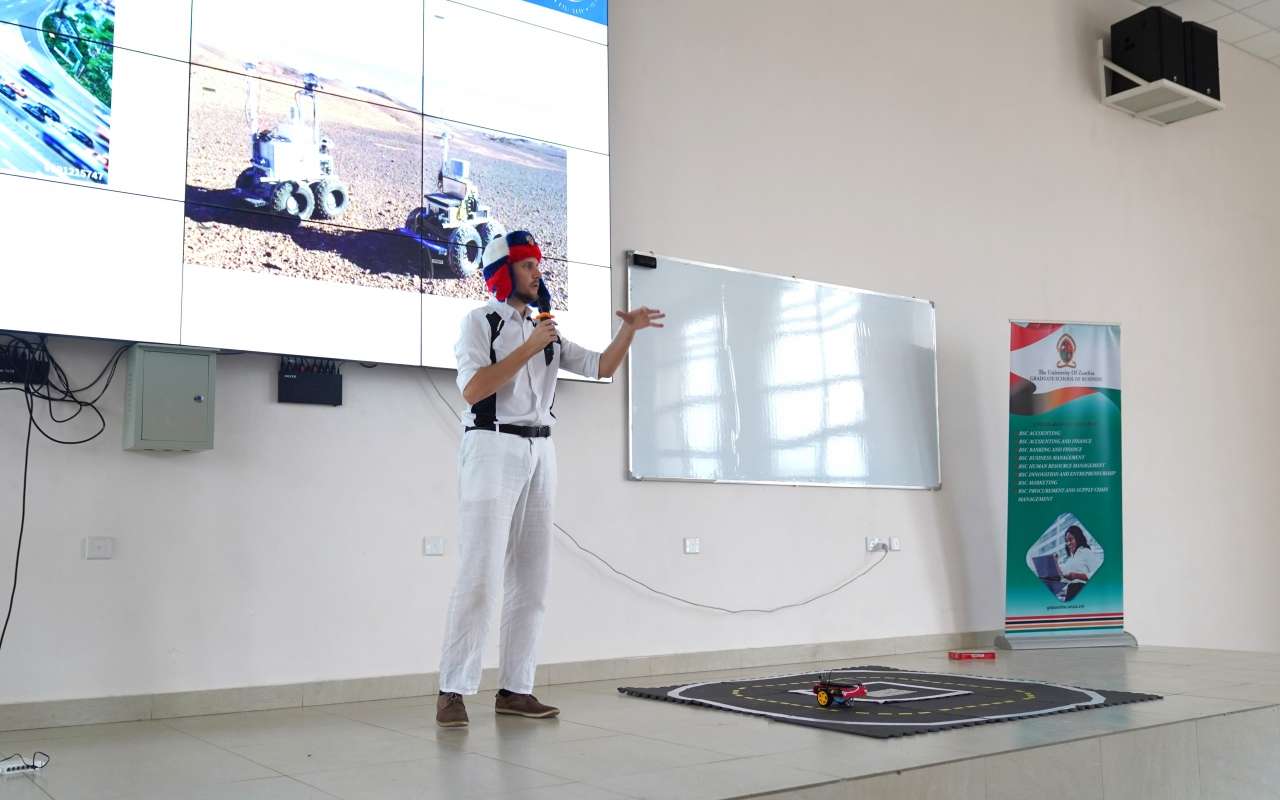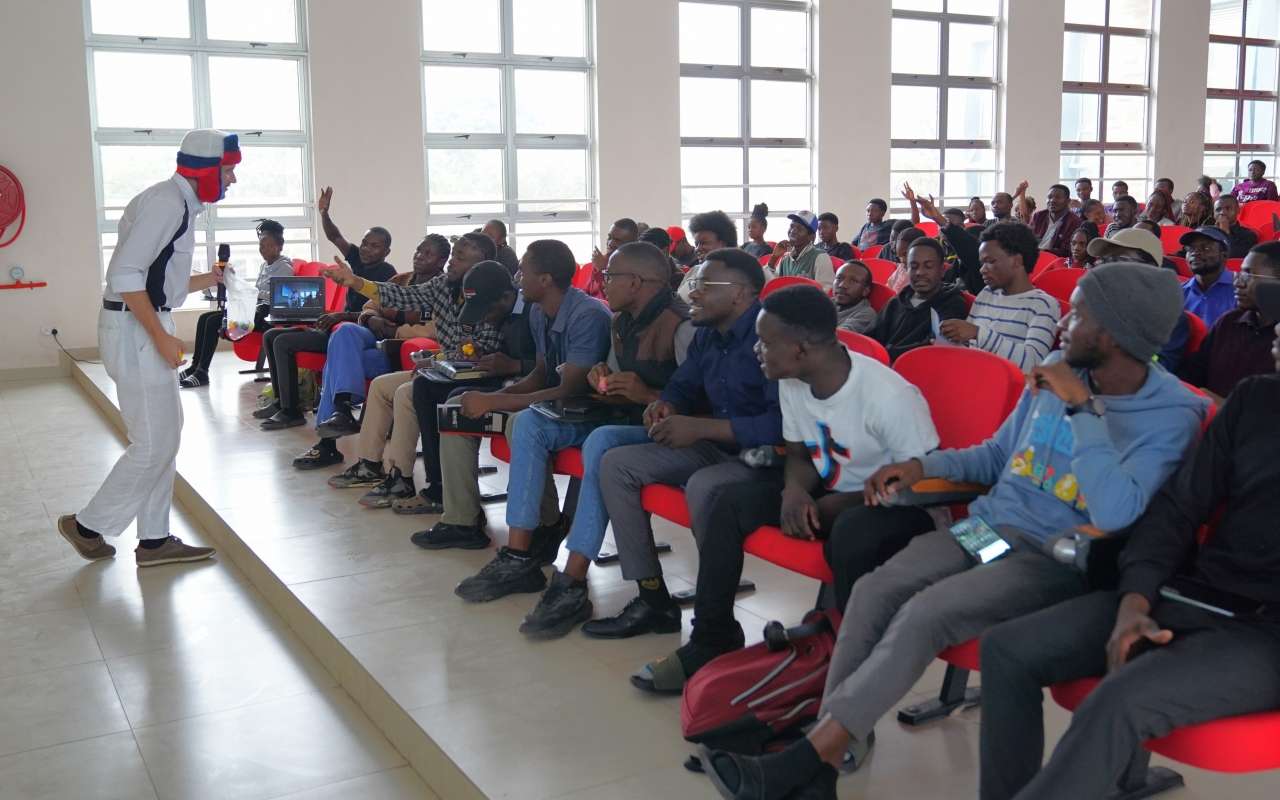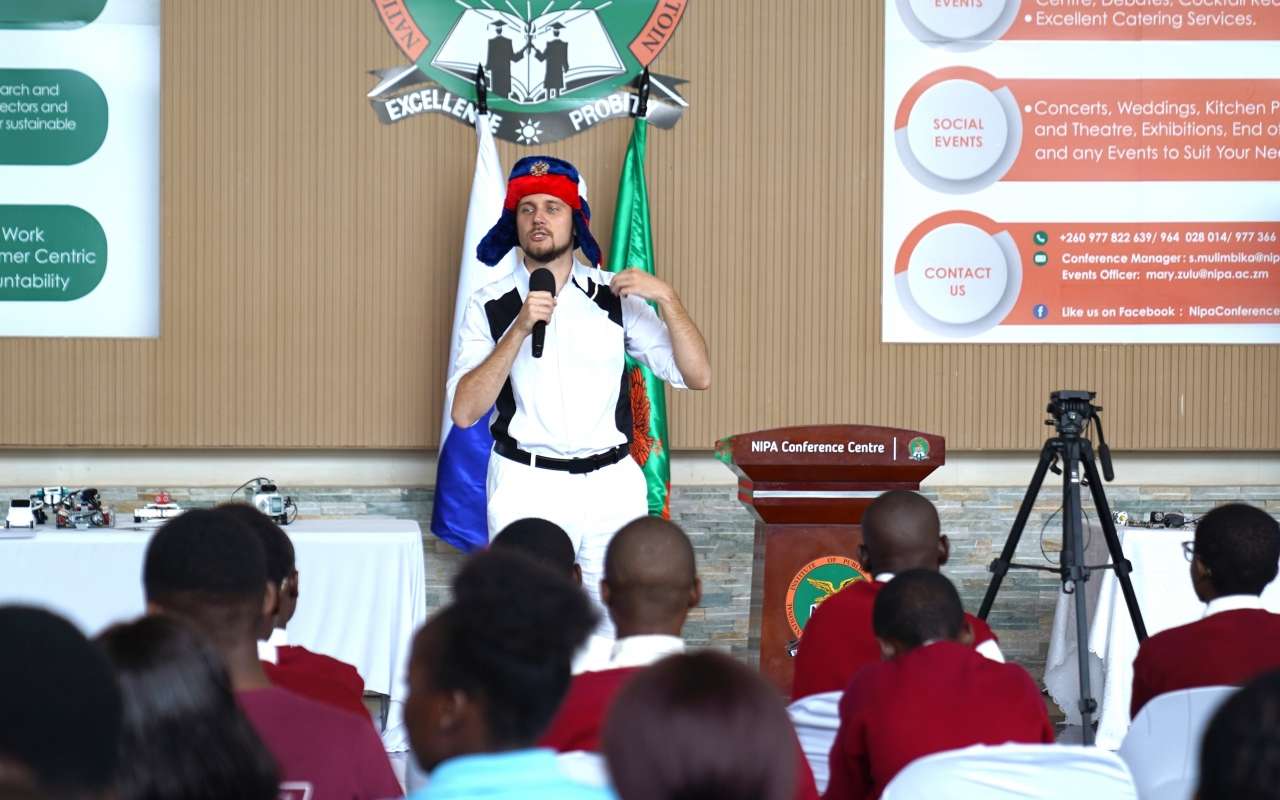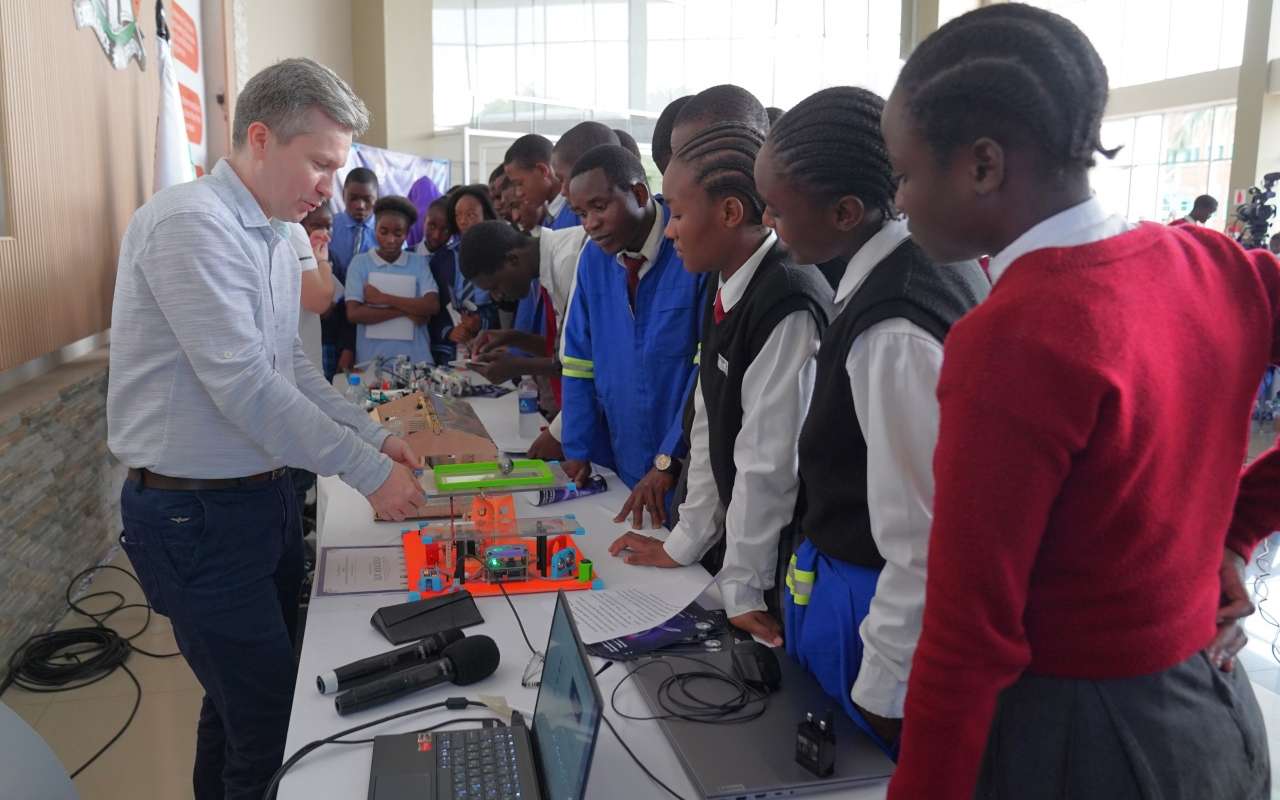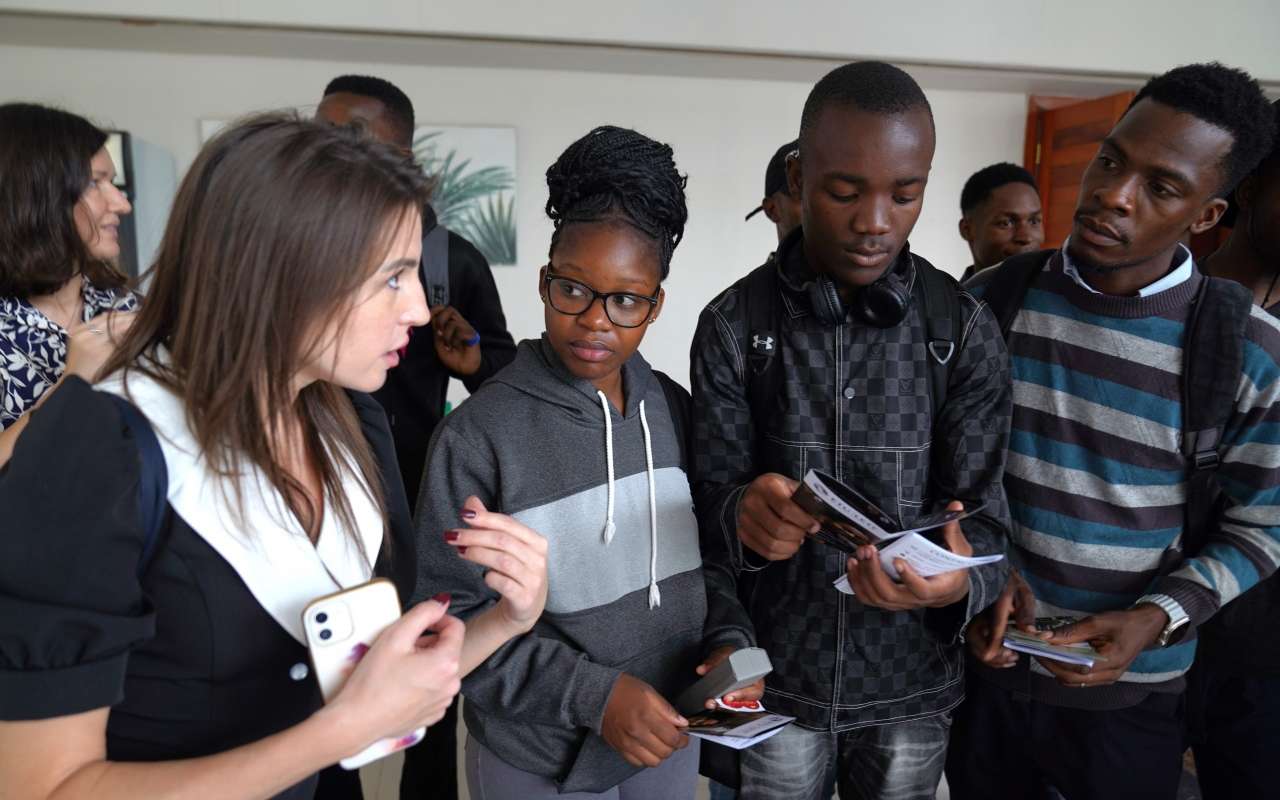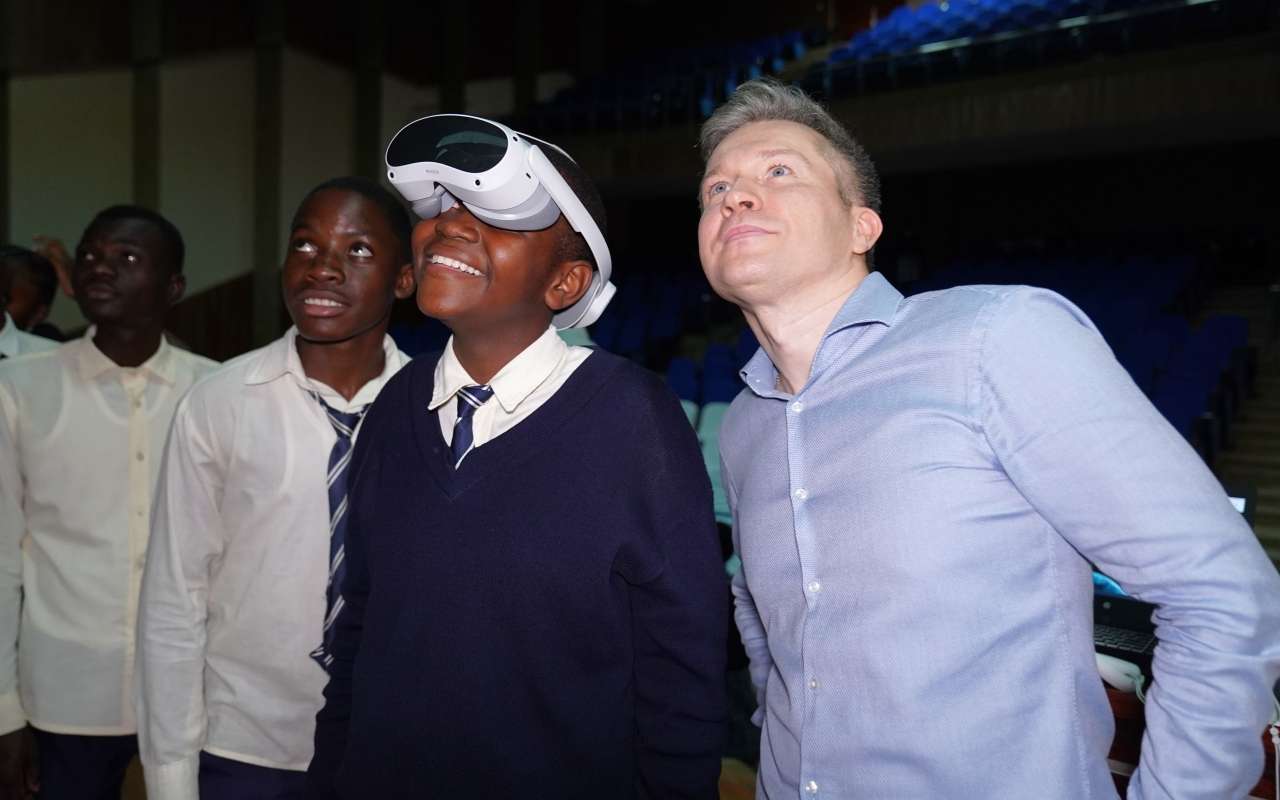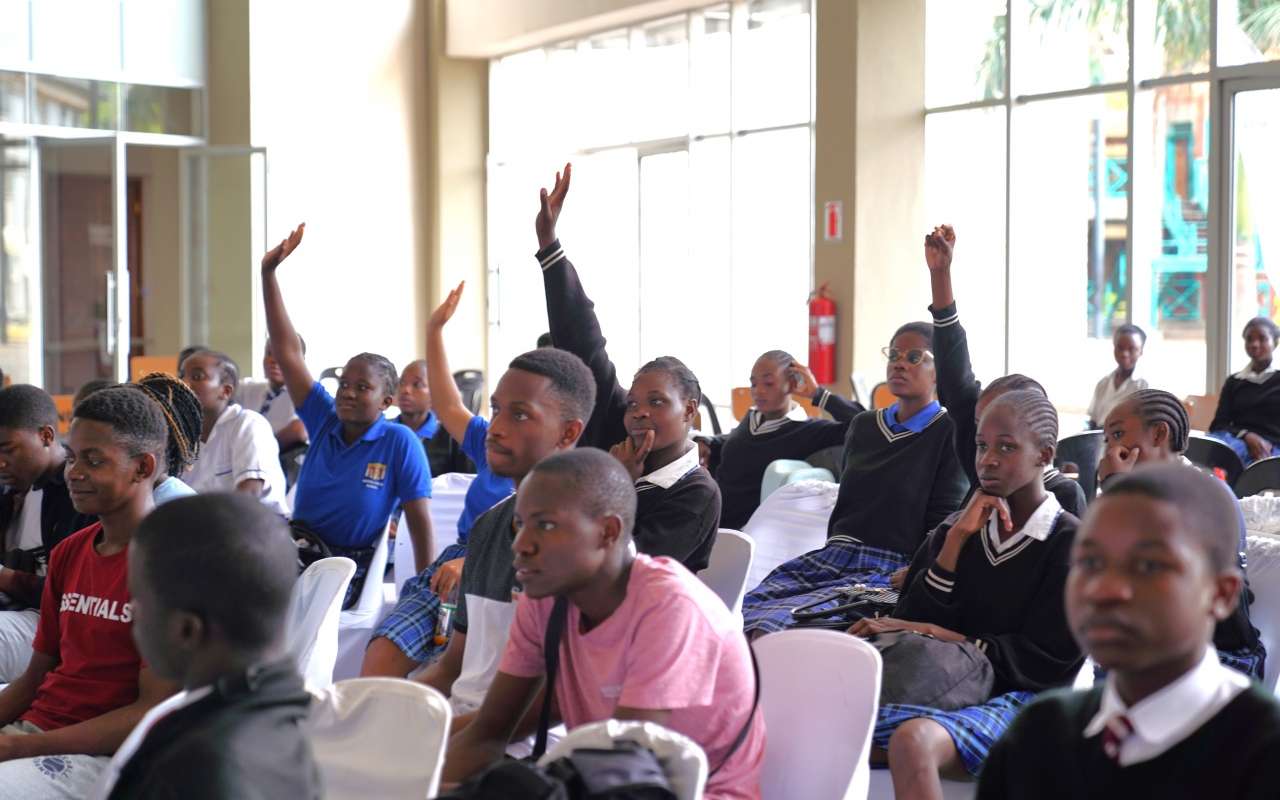New Horizons for Future Generations: Successful Conclusion of the "Days of Robotics and Innovative Educational Technologies" in Lusaka, Hosted by St. Petersburg Electrotechnical University "LETI"
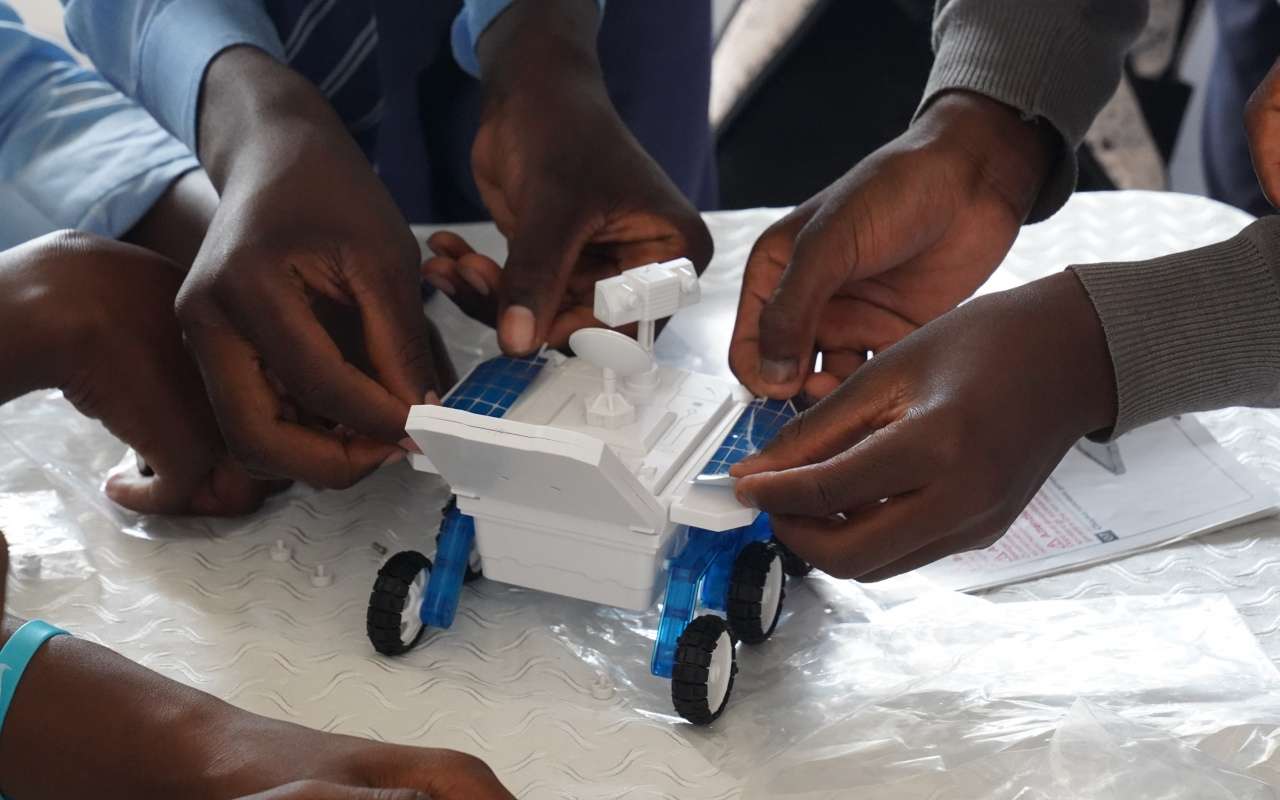
The St. Petersburg Electrotechnical University "LETI" team, in collaboration with Rossotrudnichestvo, conducted a series of educational events in the capital of Zambia focused on robotics, mechatronics, and VR technologies. More than 650 people participated in the program.
30.10.2024 300
From October 29 to 31, 2024, Lusaka, the capital of Zambia, hosted the "Days of Robotics and Innovative Educational Technologies" at the National Institute of Public Administration (NIPA). This exciting event was organized by St. Petersburg Electrotechnical University "LETI," in partnership with Rossotrudnichestvo and the Russian Center for Science and Technology in Lusaka. Over 650 participants, including schoolchildren, students, and teachers, came together to explore advancements in modern technology and innovation.
Over the course of three days, representatives from the First Electrotechnical University conducted more than 20 events in the fields of robotics, mechatronics, and VR technologies. They also informed Zambian schoolchildren and students about the opportunities for education in Russia and introduced them to Russian universities using the interactive map of higher education institutions. Additionally, on the first day of the program, a visiting session was held at the University of Zambia (UNZA), where the ETU "LETI" team demonstrated the functionality of autonomous vehicle using the "Duckietown" robotic system. This demonstration was complemented by a hands-on masterclass that encouraged active participation from UNZA students.
In his welcoming address to the participants of the "Days of Robotics", Zambian Minister of Education Douglas Syakalima expressed his hope that every programming and robotics class would bring Zambia closer to its vision of a technologically advanced future. He emphasized that the future of technological innovations in Zambia begins with inspiring young minds and expressed gratitude to the Russian side for organizing the event, hoping for more such collaborations in the future.
Addressing an audience comprised of Zambian students and Russian specialists, Professor Mundia Muya, Vice Chancellor of the University of Zambia, highlighted the potential for collaboration in the field of robotics and innovative technologies.
"Robotics is not only a technical discipline but also a powerful tool for fostering a culture of innovation. It inspires students to experiment, teaches them to embrace failure, and helps them solve real-world problems. These skills are critically important for preparing graduates who can think critically and act boldly in any field. Together with universities like yours, we aim to make Zambia a leader in robotics and technological innovation. By joining forces, we will create a bright future, establishing our universities as centers of knowledge and creativity. I sincerely thank you for your project!"
The classes on robotics, mechatronics, and VR technologies blended theoretical study with hands-on skill development. This approach encouraged active interaction among participants and sparked many questions.
"I've noticed that students have a strong interest in new technologies, particularly in the ethical implications of autonomous vehicles. In contrast, schoolchildren tend to focus more on the mechanics of specific robots. My lectures at both NIPA and UNZA sparked lively discussions, especially with students who already possessed a foundational knowledge of robotics. Engaging with learners at different levels of expertise enriched my experience and underscored the importance of sharing knowledge and ideas in the field of technology," says Anton Filatov, an assistant at the Department of Computer Engineering of ETU "LETI," a member of the teaching team for the project.
The exhibition of robotic systems sparked particular interest among schoolchildren and students.
"At the exhibition, robots equipped with tablets captured the attention of many visitors due to their remote controllability. The balance table, in particular, generated significant scientific interest. The assembly of the lunar rover was a highlight, with both schoolchildren and students eagerly participating in the process. Children asked questions with genuine curiosity, while students engaged from a more professional perspective. During the master class on programming controllers, a lively dialogue emerged among all participants, fostering an engaging learning environment," says Grigory Belsky, a senior lecturer at the Department of Automated Control Systems of ETU "LETI", a member of the teaching team for the project.
LETI team also presented exciting cultural and educational VR projects. By wearing VR glasses, participants were able to take a virtual tour of the Russian Museum – the largest museum of Russian art in the world – and see the exhibition "To New Worlds!" by artist Nadia Bey. Thanks to the educational projects from Modum Lab, students immersed themselves in astronomy and space exploration through an engaging journey in outer space, as well as explored experiments with electricity and practiced assembling electrical circuits as part of the projects "Physics. Virtual Laboratory" and "Physics. Circuit Assembly." The organizers of the "Days of Robotics" express their sincere gratitude to the Russian Museum, Modum Lab, and the "Okhra" Gallery for providing interesting VR projects that allowed participants to expand their knowledge and gain new experiences.
The educational program on robotics and VR technologies included sessions for a well-prepared audience.
"As part of the sessions dedicated to virtual reality, we practically examined the main steps of algorithms for creating virtual environments, three-dimensional models, and object positioning. In the master class on game programming in Python, participants were introduced to the fundamental concepts of game development, where interesting cases encountered in practice were analyzed through real examples," says Alexander Motyko, an associate professor of the Department of Television and Video Engineering of ETU "LETI", a member of the teaching team for the project.
The "Days of Robotics" program featured not only engaging workshops, classes, and lectures but also incorporated theoretical teaching methods relevant to these disciplines. This integration was especially beneficial for Zambian educators.
"I teach a course called "Design and Technology," which includes key technical subjects such as computer science and electrical engineering, combined with practical lessons in metal fabrication, carpentry and masonry. Teaching practical subjects and computer science provides children with unique opportunities for learning and development. Participating in such a significant event is extremely important to me, as a teacher, because I will be able to share new knowledge and ideas with my students, even those who are not present at the Days of Robotics. I have learned a lot of useful information that will help me improve and develop my existing teaching methods."
Teachers who took part in the "Days of Robotics" program observed that their students not only expanded their knowledge in the field of modern technologies and their applications but also received valuable information about educational opportunities in Russia.
"We strive for a harmonious combination of modern technologies with traditional teaching methods. We want to see our children wisely use achievements such as robotics and artificial intelligence to guide their development for the benefit of our country. Today's classes were extremely informative, and we learned a lot. Our students gained a deeper understanding of the education system in Russia and the opportunities offered by Russian universities. I am convinced that they are inspired by this experience, and I can confidently say that at least two students are already planning to come to Russia for their education."
The "Days of Robotics" attracted not only schoolchildren, students, and teachers but also those who are just starting to learn the Russian language and are considering the possibility of obtaining higher education in Russia.
"It was truly an exciting experience. Participating in the event opened up many opportunities for me that the LETI University offers. I am currently exploring various avenues for studying in Russia. I discovered the LETIteach online learning program, which allows me to study topics that interest me, and I have received several promising options to consider."
The participation of graduates from Russian universities, who have found their calling and are interested in new opportunities and exchanging experiences, was particularly indicative.
"I work for the National Institute of Public Administration (NIPA). I'm the manager of IT security and compliance in the Department of ICT. I am very inspired that my alma mater, ETU "LETI," is actively contributing to the future of robotics in my country. In an era where technology plays a key role, robotics is becoming the foundation of tomorrow. For schoolchildren in Zambia, getting acquainted with robotics opens doors to a new era, providing them with the opportunity to confidently step into the future, find decent jobs, and, importantly, contribute to the development of their country. I hope that through the Days of Robotics program, more students, like I once did, will choose to study in Russia. This will allow them to learn from our Russian colleagues and become active participants in Zambia's progress. Thank you!"
"The Days of Robotics and Innovative Education Technologies" in Zambia became a landmark event for Zambian teachers and students, providing a unique platform for the exchange of knowledge and experience in the fields of technology and education. Such initiatives contribute to strengthening cooperation between Zambia and Russia, creating strong ties in the sphere of education and science.
The "Days of Robotics" served not only as a platform for learning and professional discussions but also as an important step towards establishing a sustainable partnership between the two countries in the fields of technology and education opening new horizons for future generations.
